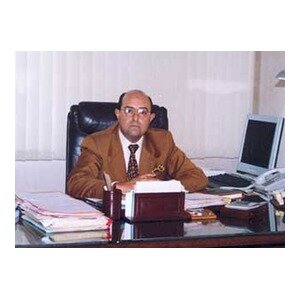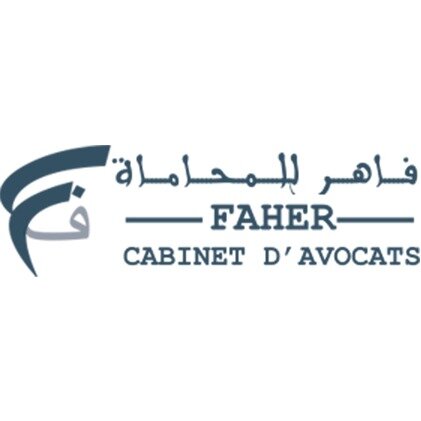Best Wrongful Termination Lawyers in Morocco
Share your needs with us, get contacted by law firms.
Free. Takes 2 min.
Or refine your search by selecting a city:
List of the best lawyers in Morocco
About Wrongful Termination Law in Morocco
Wrongful termination refers to a situation where an employee is dismissed from their employment in a manner that breaches their contractual or statutory rights. In Morocco, labor rights are safeguarded by the Moroccan Labor Code, which outlines the conditions under which an employee may be legally terminated. Wrongful termination can occur in cases of discrimination, retaliation, or failure to follow proper legal procedures for termination. Moroccan law seeks to protect employees' rights, ensuring fair treatment and due process in employment termination cases.
Why You May Need a Lawyer
There are numerous scenarios in which one might seek legal assistance regarding wrongful termination in Morocco:
- Unlawful Termination: If you believe you were fired based on discriminatory grounds such as race, gender, religion, or age.
- Violation of Contract: If your dismissal contradicts the terms stated in your employment contract.
- Retaliation: If your termination followed whistleblowing or raising concerns about illegal practices within the company.
- Procedural Fairness: If the termination procedure did not comply with the legal requirements under Moroccan law.
- Seeking Compensation: If you need assistance calculating and claiming damages or severance pay.
Local Laws Overview
The key aspects of Moroccan labor laws relevant to wrongful termination include:
- Employment Contracts: Most employment relationships are governed by formal contracts detailing the rights and obligations of both parties.
- Termination Procedures: The law requires employers to follow specific procedures when dismissing employees, often necessitating warnings and clear justification.
- Severance Pay: Employees may be entitled to severance pay depending on the circumstances of their termination and the duration of their employment.
- Dispute Resolution: Labor disputes related to wrongful termination can be brought before special labor tribunals.
- Non-Discrimination: Moroccan law prohibits discrimination and ensures that terminations are not based on unfair or discriminatory grounds.
Frequently Asked Questions
What constitutes wrongful termination in Morocco?
Wrongful termination may occur if an employee is dismissed without proper legal reason, in a discriminatory manner, or without adherence to legal procedures as outlined in the employment contract and the Moroccan Labor Code.
How can I prove wrongful termination?
To prove wrongful termination, you would need to gather evidence, such as employment contracts, internal communications, witness testimonies, and any relevant documentation that demonstrates the breach of laws or contract terms.
What should I do if I believe I’ve been wrongfully terminated?
Seek legal advice from a qualified lawyer to assess your case. Also, you should document all aspects related to your termination for use in any legal proceedings.
How long do I have to file a claim for wrongful termination?
Time limits for filing a wrongful termination claim in Morocco vary depending on the specifics of the case. It’s important to act quickly and seek legal guidance to ensure your claim is filed within the appropriate timeline.
Are there any mandatory mediations before going to court?
Moroccan labor law encourages dispute resolution through mediation, and this can often be a mandatory step before escalating a case to the labor courts.
Can I receive compensation for emotional distress in a wrongful termination case?
While Moroccan law primarily focuses on financial aspects, such as lost wages and severance, cases can vary, and elements like emotional distress may potentially be considered.
Is there protection against retaliation for reporting wrongful termination?
Yes, Moroccan labor laws protect employees from retaliatory actions by employers if the employee has reported wrongful practices or sought to assert their legal rights.
What should be included in my employment contract regarding termination?
Your employment contract should clearly outline terms concerning notice periods, grounds for termination, and the procedures your employer must follow to terminate your employment legally.
Can I be terminated during a probation period without legal recourse?
While it is generally easier for employers to terminate employment during the probationary period, there are still legal protections against unfair dismissal even during this time.
What role do labor unions play in wrongful termination cases?
Labor unions can provide guidance, representation, and support in negotiating or contesting wrongful termination and can be an invaluable resource in such disputes.
Additional Resources
Consider reaching out to the following resources for assistance with wrongful termination concerns in Morocco:
- The Ministry of Employment and Professional Integration: Offers information and guidance regarding labor laws and workers' rights.
- Labor Unions: Organizations like UMT (Union Marocaine du Travail) and CDT (Confédération Démocratique du Travail) offer support and representation for labor disputes.
- Local Labor Tribunals: These are legal bodies specifically designated to handle labor disputes, including wrongful termination cases.
Next Steps
If you suspect you are a victim of wrongful termination, consider taking the following steps:
- Document all pertinent information regarding your employment and termination.
- Consult with a labor lawyer specializing in Moroccan employment law to review your case details.
- Reach out to labor unions or employment rights organizations for additional support and guidance.
- Consider mediation or legal action via labor tribunals if initial negotiations do not resolve the dispute.
- Stay informed about your rights as an employee, continually updating yourself with changes in labor laws.
Lawzana helps you find the best lawyers and law firms in Morocco through a curated and pre-screened list of qualified legal professionals. Our platform offers rankings and detailed profiles of attorneys and law firms, allowing you to compare based on practice areas, including Wrongful Termination, experience, and client feedback.
Each profile includes a description of the firm's areas of practice, client reviews, team members and partners, year of establishment, spoken languages, office locations, contact information, social media presence, and any published articles or resources. Most firms on our platform speak English and are experienced in both local and international legal matters.
Get a quote from top-rated law firms in Morocco — quickly, securely, and without unnecessary hassle.
Disclaimer:
The information provided on this page is for general informational purposes only and does not constitute legal advice. While we strive to ensure the accuracy and relevance of the content, legal information may change over time, and interpretations of the law can vary. You should always consult with a qualified legal professional for advice specific to your situation.
We disclaim all liability for actions taken or not taken based on the content of this page. If you believe any information is incorrect or outdated, please contact us, and we will review and update it where appropriate.
Browse wrongful termination law firms by city in Morocco
Refine your search by selecting a city.

















